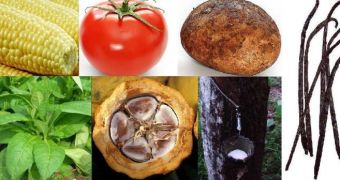Researchers managed to find out how plants manage to adapt themselves to low oxygen levels. They are now able to detect the mechanism that would make crops flood-resistant.
This could represent a key element in fighting global poverty since entire populations are left to starve after devastating floods damage the result of their efforts, destroying harvests.
Scientists from the University of California published their breakthrough in Nature, successfully explaining how plants manage to survive in extreme conditions.
It seems that, while testing the Arabidopsis, a small flower plant, biologists discovered that low levels of oxygen make a certain protein become stable, allowing the plant to adapt itself to the present conditions.
Scientists aim to find out more about the so-called “protein turnover mechanism”, in order to apply it to crops, on a large scale. By doing so, biologists hope to eliminate poverty from the list of major issues humankind is presently experiencing.

 14 DAY TRIAL //
14 DAY TRIAL //